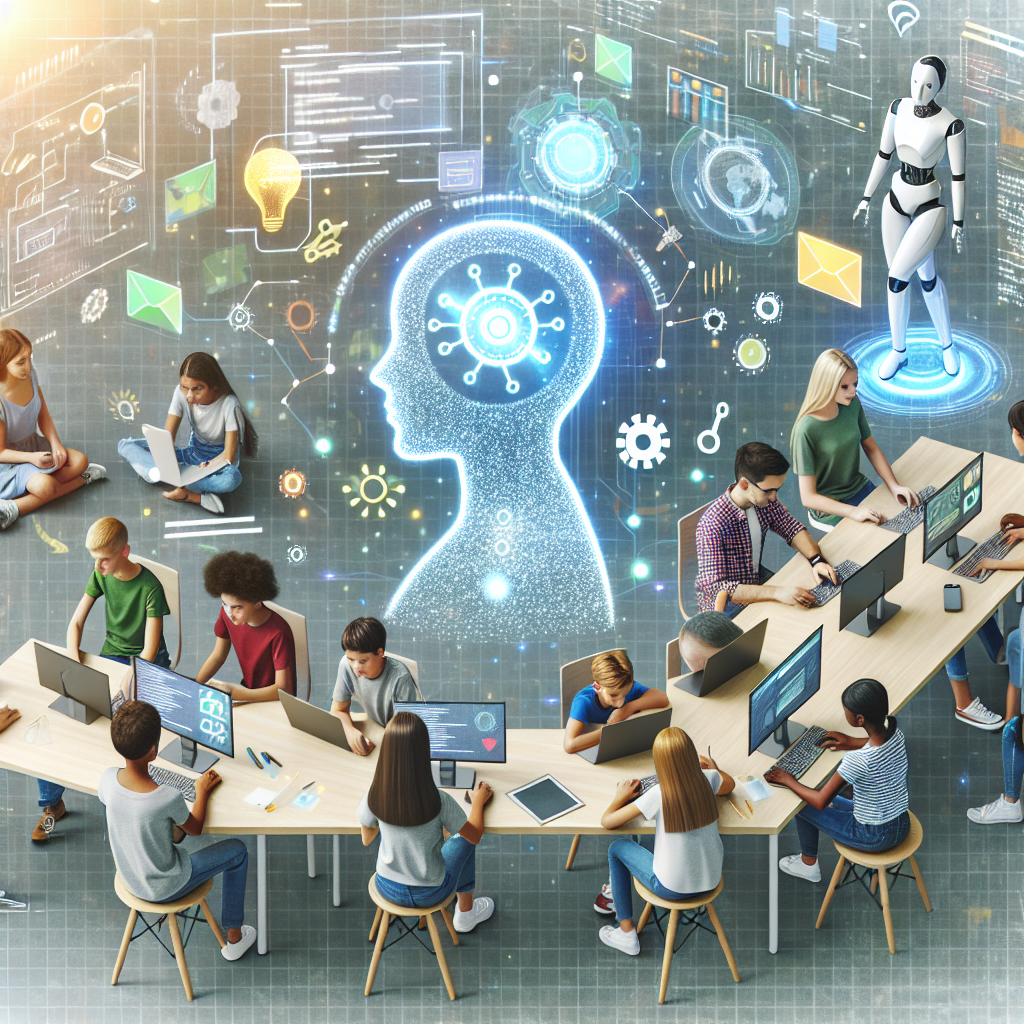In recent years, artificial intelligence (AI) has been increasingly integrated into various aspects of education, including project-based learning. Project-based learning is a teaching method in which students gain knowledge and skills by working for an extended period of time to investigate and respond to an authentic, engaging, and complex question, problem, or challenge. By incorporating AI into project-based learning, educators can enhance the learning experience for students and provide them with valuable skills that will benefit them in their academic and professional lives. In this article, we will discuss the benefits of AI in project-based learning and address some frequently asked questions about this innovative approach to education.
One of the primary benefits of using AI in project-based learning is the ability to personalize the learning experience for each student. AI technology can analyze students’ individual learning styles, strengths, and weaknesses, and provide them with personalized feedback and support throughout the project. This personalized approach helps students to stay engaged and motivated, as they are able to work at their own pace and receive guidance tailored to their specific needs.
Additionally, AI can help students to develop critical thinking and problem-solving skills by providing them with opportunities to explore complex issues and collaborate with their peers on real-world projects. AI-powered tools can assist students in conducting research, analyzing data, and generating insights that can inform their project work. By using AI to support their learning, students can develop the skills they need to succeed in a rapidly changing and technology-driven world.
Furthermore, AI can help educators to assess students’ progress and provide them with timely feedback on their project work. AI-powered assessment tools can analyze students’ performance on various tasks and provide them with detailed insights into their strengths and areas for improvement. This feedback can help students to identify areas where they need to focus their efforts and make adjustments to their project work accordingly.
Another benefit of using AI in project-based learning is the opportunity for students to engage with cutting-edge technology and develop digital literacy skills. By working with AI-powered tools and platforms, students can gain hands-on experience with the latest technology and learn how to navigate and utilize digital resources effectively. This experience can prepare them for future academic and professional opportunities that require proficiency in technology and digital skills.
In addition to the benefits for students, AI can also help educators to streamline their teaching processes and optimize their instructional practices. AI-powered tools can assist educators in managing and organizing project-based learning activities, tracking students’ progress, and providing them with support and resources as needed. By leveraging AI technology, educators can enhance their ability to facilitate meaningful and engaging learning experiences for their students.
Overall, the integration of AI in project-based learning offers a wide range of benefits for both students and educators. By leveraging AI technology, educators can personalize the learning experience for students, support their development of critical thinking and problem-solving skills, assess their progress, and provide them with valuable digital literacy skills. As AI continues to advance and evolve, the potential for its impact on project-based learning will only continue to grow.
FAQs:
1. How can educators incorporate AI into project-based learning?
Educators can incorporate AI into project-based learning by using AI-powered tools and platforms to support students’ research, analysis, and collaboration on projects. Educators can also use AI technology to assess students’ progress, provide them with feedback, and personalize their learning experience.
2. What are some examples of AI-powered tools that can be used in project-based learning?
Some examples of AI-powered tools that can be used in project-based learning include virtual assistants, chatbots, data analysis software, and machine learning algorithms. These tools can help students to conduct research, analyze data, and generate insights that inform their project work.
3. How can AI help students to develop critical thinking and problem-solving skills?
AI can help students to develop critical thinking and problem-solving skills by providing them with opportunities to explore complex issues, collaborate with their peers, and analyze data to generate insights. AI-powered tools can assist students in conducting research, organizing information, and presenting their findings in a coherent and persuasive manner.
4. How can educators use AI to assess students’ progress in project-based learning?
Educators can use AI to assess students’ progress in project-based learning by analyzing their performance on various tasks, providing them with feedback on their work, and identifying areas where they need to focus their efforts. AI-powered assessment tools can help educators to track students’ progress and provide them with timely and targeted support.
5. What are some challenges associated with integrating AI into project-based learning?
Some challenges associated with integrating AI into project-based learning include the need for educators to receive training and support in using AI technology effectively, concerns about data privacy and security, and the potential for AI to replace human interaction and feedback in the learning process. Educators must be mindful of these challenges and work to address them in order to maximize the benefits of AI in project-based learning.

